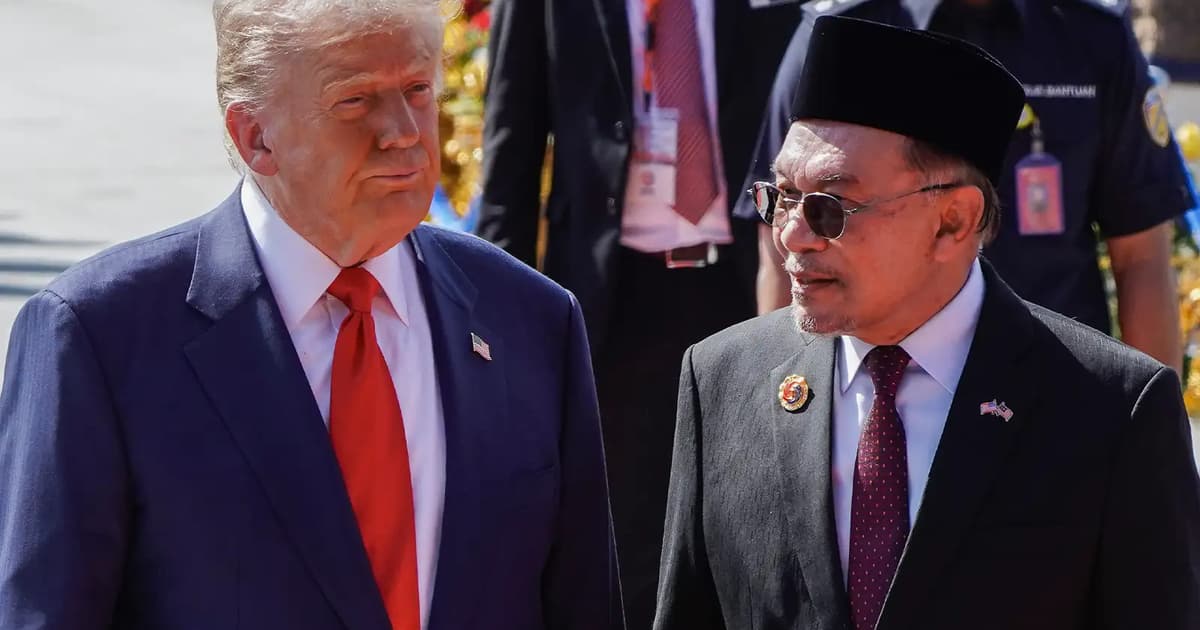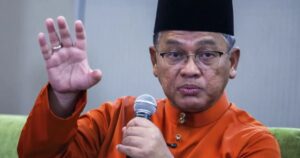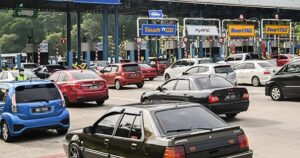
In the 80s I worked with an American colleague in Penang. He once “corrected” me by saying Asian isn’t spelled or pronounced Asean.
My eyes rolled. But who was I to correct a man, an American at that, who knows about things like these? I let it pass.
People aren’t making that mistake now, though I did catch a news anchor on one of the western news channels mistaking APEC for Asean.
But hey, perhaps he was just seconded there from our own RTM.
The recent orgy of ceremonies, meetings and traffic jams in Kuala Lumpur because of the Asean summit were indeed a sight to behold, even if they’re not something you want to be caught in.
Unfortunately, I did get caught.
Two Sundays ago I drove to KLIA to pick up my wife. What was usually a two-hour round trip ended up taking five hours.
Huge stretches of the airport highway were blocked. I detoured, diverted and visited parts of Putrajaya, Selangor and Negeri Sembilan that I hardly knew existed.
That was one epic jam. I, and the hundreds if not thousands who missed their flights that day, will remember it for a while, in my case with a smile, though probably not for the many who missed their flights.
Anwar and the Beast
That was the morning US President Donald Trump arrived in Kuala Lumpur, with the aid of the navigation equipment on Air Force One no doubt, as he probably couldn’t even point out Malaysia on a map.
Anyway, a belated welcome to Malaysia, Mr. President!
He seemed to enjoy the welcome ceremony, doing a few jigs on the tarmac to the accompaniment of the kompang music. That video clip appeared on numerous international broadcasts and podcasts, giving Malaysia millions of dollars’ worth of free and positive publicity.
Our own prime minister also got the unusual honour of riding in the “Beast” – the president’s monster of an armoured car. Wags claimed that the PM was on board purely so he could use his Malaysian IC to buy subsidised petrol on that thirsty vehicle.
Overall, I think Malaysia came out very well in the news. We got to show off our beautiful country and capital city and people and culture.
The Americans must have been impressed by the lack of houses on trees; sorry bud, over here only the very rich have tree houses.
On with the show
We certainly know how to put on a show to impress our guests. It’s part of our DNA – our famed hospitality especially when it comes to being friendly to foreigners who are not foreign workers.
I’m sure we’ve also created a lot of interest from people who never thought of Malaysia as a holiday destination. Welcome to Visit Malaysia Year 2026 to you too!
But did anything good come out of the meetings with the foreign leaders? Well, we signed some agreements with the US, which gave us tariff exemptions on a large number of our exports to the US.
Could we have got more? I doubt it. Tariffs will likely be around for the duration of Trump‘s presidency, and perhaps even after it.
Tariffs, once instituted, don’t go away easily.
But tariffs aren’t necessarily a killer for our trade with the US. Some of our exports, especially semiconductors, electronics and medical devices, can’t be easily replaced by the US, or even any of our regional economic competitors.
As long as we maintain our competitiveness, we should be able to trade with the US in pretty much the same old ways. We may have to eat some of the tariffs through price discounts – but then we may not even have to do so.
What’ll happen is Americans will have to pay more for our goods. They have made their tariff bed; now they have to sleep in it.
On the tariff game
I’ve written before that tariffs are an inevitability under Trump. They aren’t, as earlier claimed, tools to address trade imbalances – just ask Australia, Brazil, Singapore and others who have trade deficits with the US and still had tariffs imposed upon them.
Rather, they’re a tool for revenue generation to replace the income taxes that have been slashed, especially for the rich. The budget deficits caused by the loss of these incomes – which has spiked the US national debt by a couple of trillion under Trump already – need to be filled up somehow.
The old, discredited trickle down economics won’t fill out budgetary and debt holes. Lately, nobody in the Trump administration even bothered to pretend that they would.
On top of tariffs for everybody, whether friends or foes, there’s now also an “entry fee” for trading with the US. Figures in the hundreds of billions have been imposed on the EU, Japan, South Korea, the UK and even little old us.
This is nothing but a shake-down, the kind of things gangsters do. The US under Trump is doing it because they can. The EU and especially the UK just meekly accepted them. And so did South Korea and Japan – until lately.
Suddenly our East Asian cousins are growing a spine on this matter. We’ll wait and see how they react to this extortion – the price of them getting things wrong can mean their own governments falling, as had happened with Japan recently.
Staying out of the fray
Little old Malaysia is trying its best to stay out of the fray. We can’t afford to raise Trump’s ire – but neither can we afford to destroy bridges we’ve built over decades with other trading partners.
But perhaps the worst of the trade wars is beginning to abate. It turned out not everybody will fold when confronted by Trump – Canada and China being the clearest examples.
Canada, which also faces having its sovereignty challenged by Trump, is giving priority to increasing trade with the rest of the world and reducing reliance on the US, their traditional partner.
China is playing hardball, in effect telling the US “we have the cards too”. They indeed do have many trade weapons and tools at their disposal, while having more leeway in their domestic politics to dealing with the US.
Their recent actions in stopping rare earths exports show this. Their strength here comes from having played the long game on rare earths for decades as part of their national energy strategy.
That had led them to be the biggest producer of rare earth minerals in the world, as well as the processor of almost all of these minerals too.
The US will never catch up here. A typical Chinese university produces more mining engineers in a year than all the US universities combined. The same applies to all the other expertise and disciplines needed to mine and process rare earths.
Apart from this serious lack of skills and expertise, there are billions of investments needed, years of lead-time, as well as the tangles of laws and environmental issues.
The rare earths card
We in Malaysia know how complex the matter of processing rare earths is, if anybody still remembers the decades-long and still on-going controversies regarding our own processing of these minerals.
So, it turns out Malaysia has some of the cards too. An increasingly important card is our national will and resolve, which is critical as demonstrated by Canada and China, and by the lack of them as shown by the UK and the EU.
Certainly, we’re not quite in their league. But we do export a lot of things to the US that they can’t do without. We’re a big, stable and rational trade player in the region and in the world, even while much of the world is becoming more irrational.
It looks like our chairmanship of Asean, which has just ended, came at the right time.
We managed to steer clear of being crushed in the melee of nations hysterically rushing around trying to deal with the chaos being created by the US.
If anything, our position is enhanced.
Feeling good
We can afford some feel-good moments. It would’ve been unreasonable to expect us to win major concessions from the US. Their mind is made up, and unless you’re China, you shouldn’t fancy your chances.
We did end up with some advantages over our economic competitors, even those from Asean (and even Asian) countries. Our strategies going forward should be maximising the benefits from these advantages while we still have them.
We should bide our time. The US will recover from this madness at some point, though much weaker and diminished. We haven’t burned any bridges with them, and will continue to trade and deal, but with more confidence and resolve .
At the same time, we’re also keeping good relationships with the other players, including those on the opposite camps to the US. This is a surprising talent that Malaysians have – our pragmatism of not going over the brink.
All in all, it was a pretty good week for Malaysia. We shone in one area where we have always shone – dealing with complex foreign policy and relationships issues.
However, the next time we have a big party like this, please don’t go overboard and shut down the entire city. Find some other more rational ways to manage traffic and society.
Let people remember the events for the right reasons.
The views expressed are those of the writer and do not reflect those of FMT.






